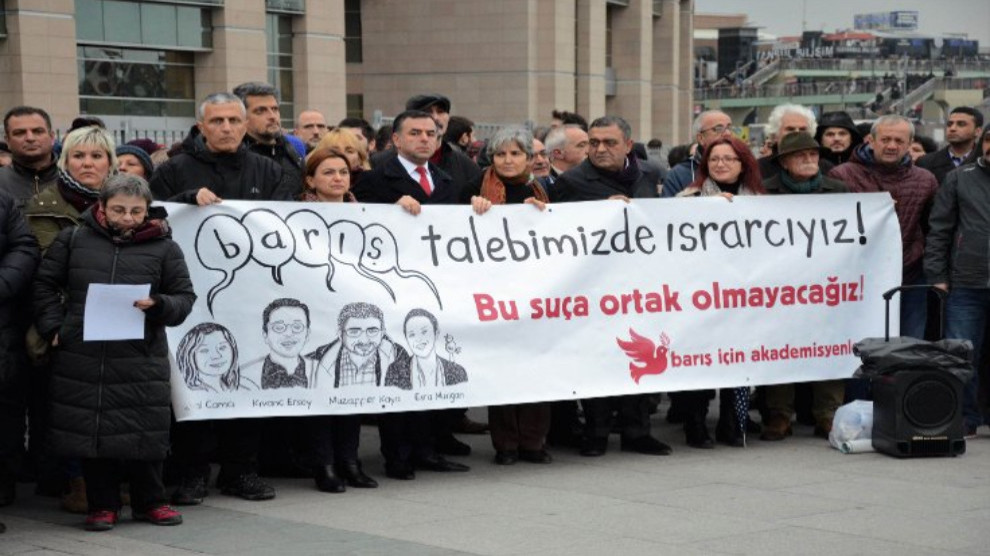Constitutional Court clears 9 academics who signed peace appeal
The Constitutional Court in Turkey has ruled that the freedom of expression of 9 academics who appealed for peace in the country has been violated.
The Constitutional Court in Turkey has ruled that the freedom of expression of 9 academics who appealed for peace in the country has been violated.

The nine academics, Füsun Üstel, İbrahim Garip, Yasemin Gülsüm Acar, Ayda Rona Aylin Altınay Cingöz, Melda Tunçay, İzzeddin Önder, Canan Özbey, Nazlı Ökten Gülsoy and Zübeyde Gaye Çankaya Eksen, had been convicted on charges of "making propaganda for an illegal organisation" because they signed a peace petition in 2016.
Now the Costitutional Court has ruled that this conviction violated their right to freedom of expression.
In concrete terms this would mean that academics can no longer be convicted, the restriction of the freedom to travel is therefore invalid, and academics can also obtain passports.
Likewise previous convictions yet must be revoked and the dismissed academics must start their work again.
It remains to be seen how quickly these decisions are implemented.
Background
The petition for peace was launched on 11 January 2016 and called for a restart to peace negotiations between the PKK and the government, criticizing military operations in the majority Kurdish south-east regions of Turkey. A total of 2,212 academics signed it.
Over 700 have been charged with “making propaganda for an illegal organization”, with several convicted and sentenced to up to three years in jail.
On 3 March 2019, a regional appeals court confirmed one year and three months prison sentence of one of the signatories, Professor Zübeyde Füsun Üstel. She was released from prison on 22 July following a court decision suspending the execution of her sentence pending an appeal. She is one of the applicants in the case the Constitutional Court decided upon on 26 July 2019.
Hundreds of the signatories were also arbitrarily dismissed or forced to resign from their jobs at various public and private universities in Turkey.
Of those dismissed, 406 are also banned from public service for life as they were discharged through executive decrees issued during the two-year state of emergency for unspecified “links to terrorist organizations.